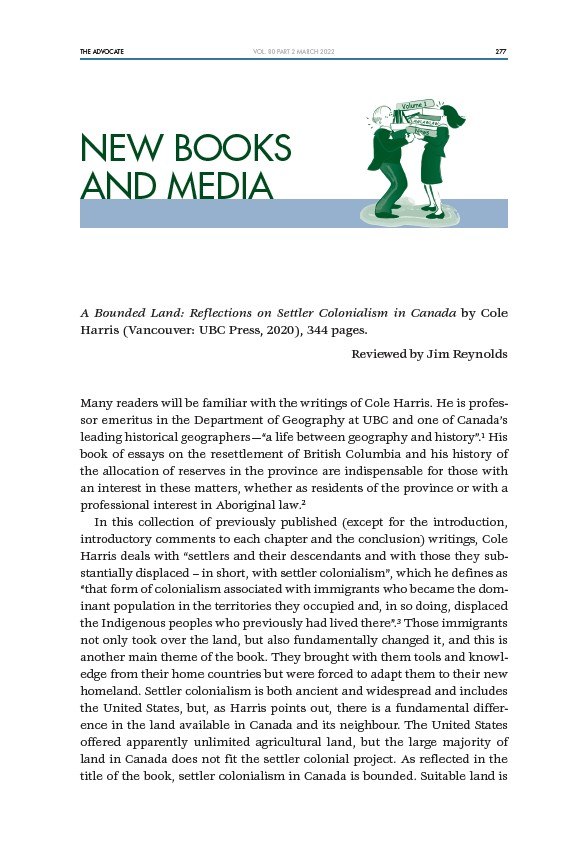
THE ADVOCATE 277
VOL. 80 PART 2 MARCH 2022
NEW BOOKS
AND MEDIA
By R.C. Tino Bella*
A Bounded Land: Reflections on Settler Colonialism in Canada by Cole
Harris (Vancouver: UBC Press, 2020), 344 pages.
Reviewed by Jim Reynolds
Many readers will be familiar with the writings of Cole Harris. He is professor
emeritus in the Department of Geography at UBC and one of Canada’s
leading historical geographers—“a life between geography and history”.1 His
book of essays on the resettlement of British Columbia and his history of
the allocation of reserves in the province are indispensable for those with
an interest in these matters, whether as residents of the province or with a
professional interest in Aboriginal law.2
In this collection of previously published (except for the introduction,
introductory comments to each chapter and the conclusion) writings, Cole
Harris deals with “settlers and their descendants and with those they substantially
displaced – in short, with settler colonialism”, which he defines as
“that form of colonialism associated with immigrants who became the dominant
population in the territories they occupied and, in so doing, displaced
the Indigenous peoples who previously had lived there”.3 Those immigrants
not only took over the land, but also fundamentally changed it, and this is
another main theme of the book. They brought with them tools and knowledge
from their home countries but were forced to adapt them to their new
homeland. Settler colonialism is both ancient and widespread and includes
the United States, but, as Harris points out, there is a fundamental difference
in the land available in Canada and its neighbour. The United States
offered apparently unlimited agricultural land, but the large majority of
land in Canada does not fit the settler colonial project. As reflected in the
title of the book, settler colonialism in Canada is bounded. Suitable land is